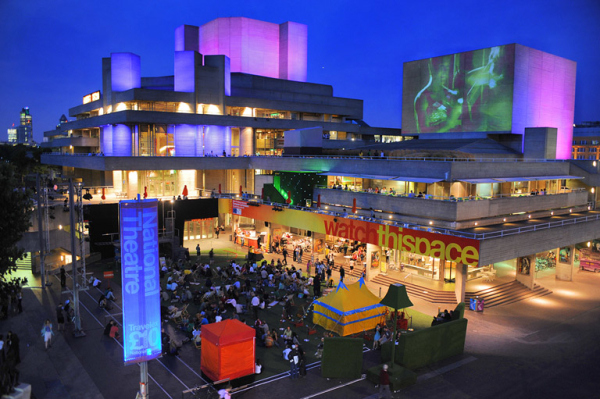Matt Trueman: Rufus Norris is subtly creating a National Theatre for everyone
Norris, who announced his inaugural season last week, wants his National to speak to the nation

(© Steve Cummiskey)
However, what, at first glance, seemed safe, actually turns out to be subtle. Beneath the surface of his first year's programming, there's a strong common theme – and it's us; the people. Norris clearly wants a National Theatre for the nation.
Starting with Everyman is significant – that much is obvious. It's a play that, through its title alone, puts us all onstage. Doubly so, when you cast a black actor as your Everyman. Asked whether he'd considered an Everywoman, Norris spoke of having two possible paths available: gender or diversity. Either would disrupt the default reflection of 'common man' that inevitably finds its zero point in the white and well-spoken. Worth noting, too, who's doing the adapting: Carol Ann Duffy, our poet laureate, whose job it is to write on all our behalves.
What took a few days to fully sink in, however, is how deeply that thread of egalitarianism runs through his first season.
Caryl Churchill's Light Shining in Buckinghamshire, which opens his Lyttelton programming, shows us the Putney Debates, shortly after the Civil War, in which the radical Levellers pushed for universal suffrage; "one man, one vote." Norris's Dorfman, meanwhile, kicks off with The Red Lion by Patrick Marber, a play about football, our national game – and grass roots football at that. Pub teams, not Premiership stars. Us not them. Both are plays about The People: capital T, capital P.
It's all about the sorts of people we'll see onstage: miners in the condensed DH Lawrence trilogy, convicts in Our Country's Good, zero-hour temps – the working poor – in Alexander Zeldin's Beyond Caring. Where the powerful are onstage, we'll see the mechanisms of that power: the way, in Waste, the Tory grandees rally to protect one of their own; the manipulation that takes place, for real, in Tim Crouch's An Oak Tree.
'More power to their collective elbows, I say'
Programming a pop star, Damon Albarn – a Britpop talisman to boot – is a statement of its own, as is staging such a syllabus staple as Our Country's Good. You can also point to the prominence afforded black actors – Ejiofor in Everyman, of course, then The Motherfucker with the Hat, Ma Rainey's Black Bottom – and the very equal mix of male and female playwrights; something for which Nicholas Hytner was explicitly criticised. Islington Community Theatre are another telling inclusion in the Shed line-up.
In his blog last week, Michael responded thus: "In the admirable rush to be all things to all men in the name of diversity and inclusivity, the danger is you lose sight of what you really want to do."
But what if being all things to all men – embracing diversity and inclusivity – is precisely what Norris and his team want to do? That's what the programming points towards. More power to their collective elbows, I say.
If I've a reservation, it's this: I'm not sure that talking about egalitarianism is the best way to open up the National Theatre to new audiences. If you use the same stages to stage the same sorts of plays in the same sorts of ways, you will inevitiably draw the same sorts of audiences. That message of egalitarianism, necessary though it is, will reach the same ears.
Opening the National up needs a more radical approach. You have to open up the building. That's what keeps people out: the thought that theatre – and theatres – aren't for them, that they don't belong there. Architecture can be off-putting; Denys Lasdun's concrete fortress more than most. The windows of NT Future have gone some way to changing that.
But programming structures play their part too. Think about what's worked in the past. The Transformation season at the turn of the century, with its new Loft space, brought in 27 percent first-time bookers. The Shed has more than doubled that: "well-over 60 percent," Ben Power claimed in February. Programming Shunt and Punchdrunk off-site, Watch This Space and, in its own way, NT Live – these are the initiatives that have reached new audiences and widened the National's appeal. It's why Norris's model of co-producing with regional theatres is the biggest statement of all.
It's one thing for the National to put the people on its stages. It's quite another to take those stages to the people. If Norris wants a National for the nation, that's what he's got to do.












